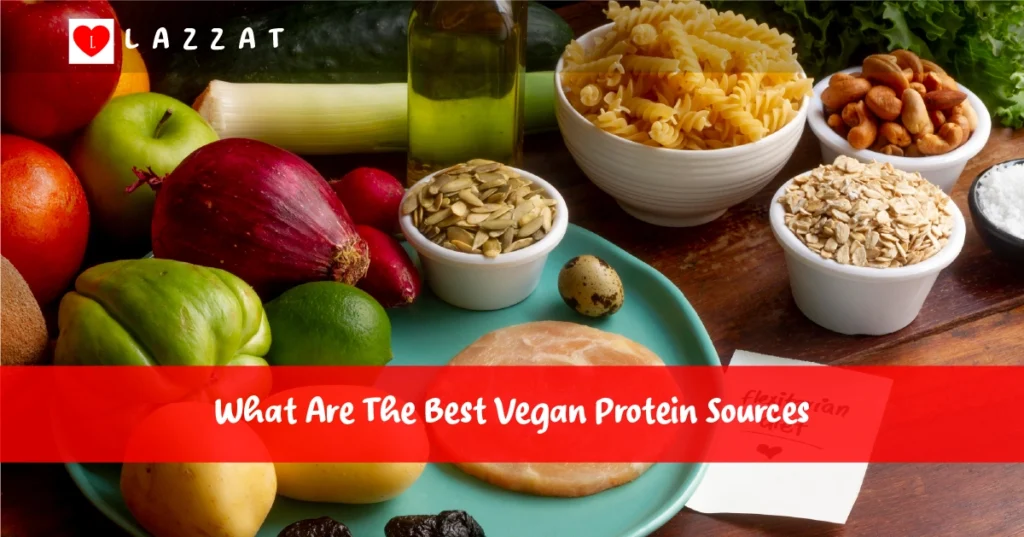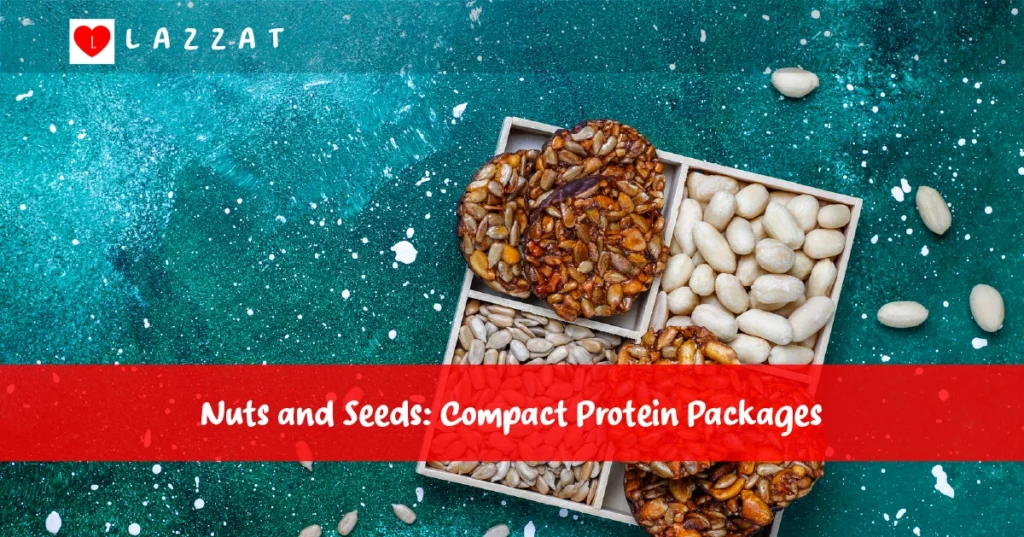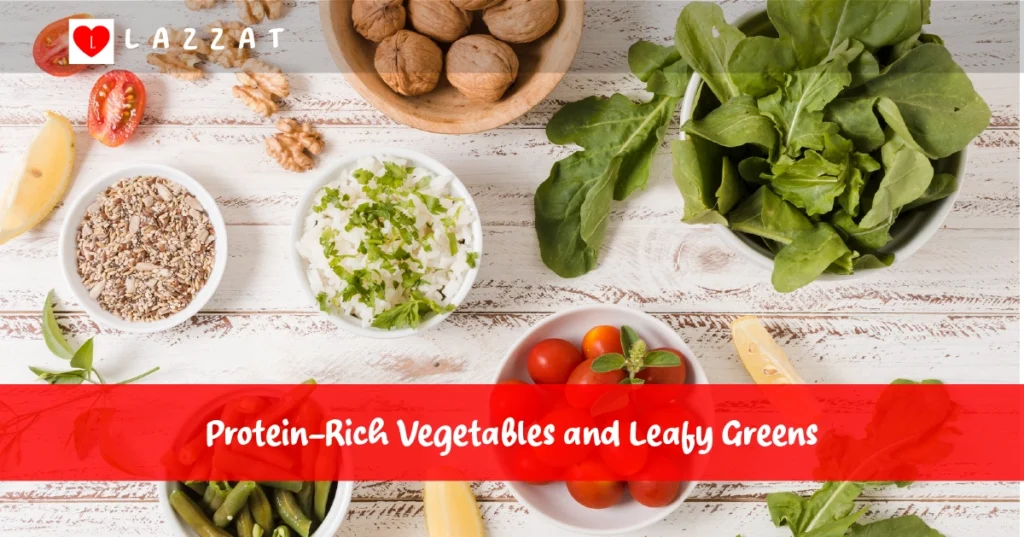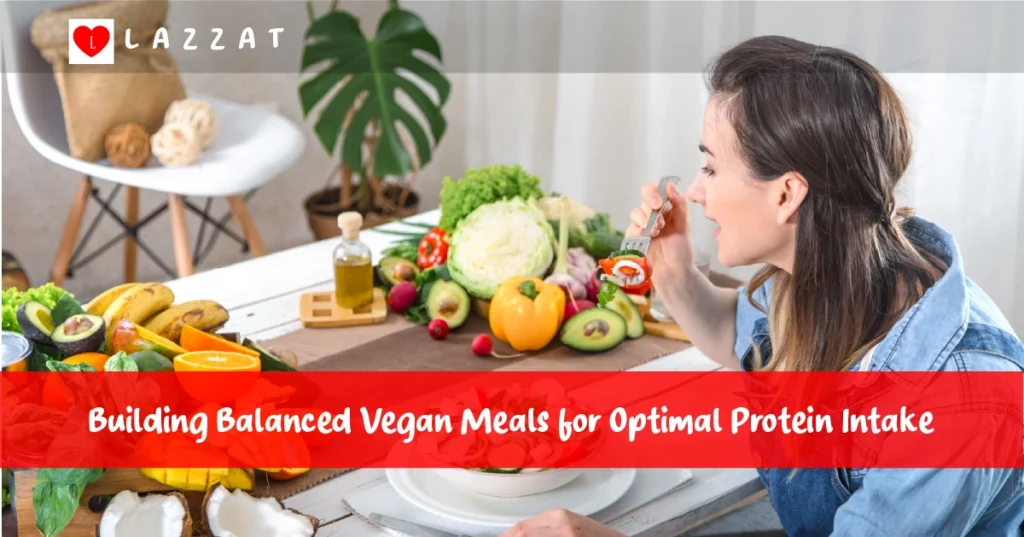What Are The Best Vegan Protein Sources: Plant Power
- mylazzat
- Best Vegan, Protein, Protein Sources, Vegan
- 0 Comments
Are you a vegan or vegetarian looking for protein? You’re in the right place! This guide will show you the best vegan protein sources. You’ll learn about legumes and meat alternatives that are perfect for a plant-based diet.
Understanding Plant-Based Protein Fundamentals
Exploring vegan protein sources is key. You need to know how your body uses these nutrients. We’ll look at protein absorption, complete vs. incomplete proteins, and daily needs for a plant-based diet.
The Science Behind Protein Absorption
Your body breaks down amino acids from vegan proteins. It uses enzymes and digestive systems to absorb them. This ensures your cells get what they need for growth and repair.
Complete vs. Incomplete Proteins
Not all vegan proteins are the same. Complete proteins have all essential amino acids. Incomplete proteins lack some. Knowing this helps you choose the right foods for your protein needs.
Daily Protein Requirements for Vegans
Vegans need 0.8 to 1.0 grams of protein per kilogram of body weight daily. This can change based on age, activity, and health. Eating a variety of high-protein vegan foods helps meet these needs.
| Protein Source | Protein Content (per 100g) |
|---|---|
| Tofu | 8g |
| Tempeh | 19g |
| Lentils | 9g |
| Peanuts | 25g |
| Quinoa | 4g |
Understanding plant-based proteins helps you make better choices. It ensures you get the nutrients your body needs to thrive.
What Are The Best Vegan Protein Sources
Plant-based proteins offer a wide range of choices. From legumes to nuts, seeds, and whole grains, there’s plenty to choose from. These options are great for those looking to boost their protein intake.
Legumes like lentils, chickpeas, and beans are packed with protein. They’re also full of other important nutrients. This makes them a key part of many vegan diets.
Soy-based products, such as tofu, tempeh, and edamame, are also high in protein. You can use them in many dishes, from stir-fries to burgers. They add a protein-rich element to your meals.
Nuts and seeds, like almonds, walnuts, chia, and flax, are small but mighty. They’re great as snacks or in meals. They’re not just protein, but also healthy fats and vitamins.
Whole grains, including quinoa, amaranth, and buckwheat, are often overlooked. But they can add a lot of protein to your diet. Adding them to your meals can help meet your protein needs.
Plant-based meat alternatives, like those from Beyond Meat and Impossible Foods, are also gaining popularity. They offer vegans more options for protein without sacrificing taste or texture.
By trying different plant-based protein sources, you can make your vegan diet tasty and nutritious. There’s a wide range of options out there. Find the ones that work best for you.

Legumes: The Protein Powerhouse of Plant Kingdom
Exploring vegan protein sources leads to legumes, a true powerhouse. These foods are rich in protein, making them key in vegetarian diets. Learn about the benefits of beans, lentils, and pea protein products that are changing the plant-based food scene.
Benefits of Different Bean Varieties
Legumes offer a wide range of nutrients and flavors. From black beans to cannellini, each type is high in protein, fiber, and vitamins. Adding bean-based dishes to your vegan or vegetarian diet meets protein needs and adds flavor.
Lentils and Their Protein Content
Lentils are a nutrition powerhouse in the legume family. They are known for their high protein content, with a cup offering up to 18 grams. Brown, red, or green lentils are great in soups and vegetarian dishes.
Chickpeas and Pea Protein Innovation
Chickpeas, or garbanzo beans, are packed with protein, fiber, and vitamins. They’re a favorite in vegetarian and vegan cooking. The use of chickpeas and peas has led to new vegan protein products, changing the plant-based food world.
Soy Products as Premium Protein Sources
In the world of vegan bodybuilding and plant-based nutrition, soy products are top choices. They are packed with benefits for those who want complete proteins to support their active lives.
Tofu, a key part of Asian cuisine, is a soy-based food with lots of protein. It’s made from soy milk and can take on many flavors. This makes tofu a great choice for vegans who want to build muscle.
Tempeh, another soy product, has a nutty taste and is high in protein. It has all the amino acids needed for muscle growth. Its firm texture makes it perfect for stir-fries and burgers.
Edamame, or fresh green soybeans, are a tasty snack with lots of protein. They are a favorite among vegans and health enthusiasts for their complete plant-based proteins.
| Soy Product | Protein Content (per 100g) |
|---|---|
| Tofu | 8g |
| Tempeh | 19g |
| Edamame | 11g |
Soy products are key for vegan bodybuilders and health lovers. Tofu, tempeh, and edamame are all great options. They offer delicious and nutritious ways to support your active lifestyle and plant-based fitness goals.
Nuts and Seeds: Compact Protein Packages
Nuts and seeds are big players in plant-based proteins. They pack a punch with essential nutrients, including high-quality proteins. These are great for vegan and vegetarian diets.
Top Protein-Rich Nuts for Vegans
For vegans looking for protein, almonds and walnuts are top choices. Almonds have 6 grams of protein per ounce. Walnuts offer about 4 grams. Both are rich in healthy fats, fiber, and vitamins.
Seed Varieties and Their Protein Profiles
- Chia seeds are a vegan superfood, with 4 grams of protein per 2 tablespoons. They also have omega-3 fatty acids.
- Hemp seeds are a protein powerhouse, with 10 grams of protein per 3 tablespoons. They also have essential amino acids.
- Pumpkin seeds are versatile, with 5 grams of protein per ounce. They also have magnesium, zinc, and antioxidants.
Adding a variety of nuts and seeds to your vegan diet boosts your protein intake. These protein packages are also rich in other nutrients. They’re a key part of a high-protein vegan foods diet.

Whole Grains and Ancient Grains
Whole grains and ancient grains are true superheroes in the world of plant-based proteins. They are packed with complete proteins and other essential nutrients. These include vitamins, minerals, and fiber, all vital for a balanced diet.
Quinoa stands out as a top plant-based protein source. It has a complete amino acid profile, perfect for vegans and vegetarians. Its fluffy texture and nutty flavor make it great for salads and porridges.
Amaranth is another ancient grain with a high protein content. It’s gluten-free and can be used in snacks and baked goods. Its earthy flavor and crunchy texture are loved by many.
| Grain | Protein Content (per 100g) |
|---|---|
| Quinoa | 4.4g |
| Amaranth | 9.4g |
| Teff | 13.3g |
Teff, an ancient grain from Ethiopia, is also high in protein. It’s tiny and gluten-free, great for making bread and porridges. Teff is a must-try for those following a plant-based diet.
“Whole grains and ancient grains are true powerhouses when it comes to plant-based proteins. They offer a complete amino acid profile, making them an essential addition to any vegetarian or vegan diet.”
Adding these protein-rich whole grains and ancient grains to your diet makes it delicious and nutritious. They ensure your vegetarian diet is full of the nutrients your body needs.
Modern Plant-Based Meat Alternatives
Plant-based meat alternatives are changing the game for vegan and vegetarian diets. They meet ethical and environmental needs and are packed with protein. This makes them a great choice for those looking to eat less animal products.
Beyond Meat and Impossible Foods Products
Beyond Meat and Impossible Foods are at the forefront of this change. Their products use plant-based ingredients to mimic meat’s taste and texture. They are rich in vegan protein sources and match traditional meat in nutrition.
Seitan and Tempeh Options
Seitan and tempeh are also key players in plant-based proteins. Seitan, made from wheat, and tempeh, a soybean cake, have been around for years. They offer lots of protein and different textures for cooking.
- Seitan, known as “wheat meat,” has a meaty feel and works well in many dishes, like burgers and stir-fries.
- Tempeh has a nutty taste and a firm texture, perfect for marinades and grilling.
The rise in demand for meat alternatives and plant-based proteins is huge. Both old and new options give people many choices to add more vegan protein sources to their meals.
Protein-Rich Vegetables and Leafy Greens
Many think vegan protein sources are only in legumes, nuts, and soy. But, many veggies and leafy greens are also high in protein. Adding these to your vegetarian diet can help you get enough protein. It also makes your diet more balanced and high-protein vegan.
Broccoli is a top protein source. One cup of cooked broccoli has 3 grams of protein. Spinach and kale, favorites in the vegan protein sources world, have 5 and 3 grams per cup. Even peas, a vegetarian diet classic, have 8 grams per cup.
- Broccoli: 3 grams of protein per cup (cooked)
- Spinach: 5 grams of protein per cup (raw)
- Kale: 3 grams of protein per cup (raw)
- Green peas: 8 grams of protein per cup (cooked)
Other veggies like asparagus, Brussels sprouts, and artichokes also have protein. Eating a mix of these can make your diet more varied. It also keeps your meals tasty and fulfilling.
| Vegetable | Protein (g per cup, cooked) |
|---|---|
| Broccoli | 3 |
| Spinach | 5 |
| Kale | 3 |
| Green Peas | 8 |
| Asparagus | 4 |
| Brussels Sprouts | 4 |
| Artichokes | 4 |
Adding a variety of protein-rich veggies and leafy greens to your vegan protein sources and vegetarian diet is key. It ensures you get enough protein. It also brings many health benefits from a plant-based diet.

Vegan Protein Powders and Supplements
The vegan lifestyle is becoming more popular. This means more people are looking for good plant-based protein sources. Vegan protein powders and supplements are key for those who want to stay active and healthy with plant-based proteins.
Types of Plant-Based Protein Powders
Vegan protein powders come in many types to fit different needs and tastes. Here are some common ones:
- Pea protein: Made from yellow split peas, it’s a high-protein vegan food that’s easy to digest and full of amino acids.
- Rice protein: From brown rice, it’s a flexible choice that’s good for those who can’t handle soy or dairy.
- Hemp protein: It’s rich in healthy fats, fiber, and amino acids, making it a great choice for vegan bodybuilding.
- Soy protein: A common plant-based protein, soy protein isolate and concentrate are great for vegans and vegetarians.
How to Choose the Right Supplement
Choosing the right vegan protein powder or supplement is important. Think about your needs and fitness goals. Look at protein content, how well it’s absorbed, and what you like. Also, pick products that have been tested by third parties to ensure they’re safe and pure.
| Protein Powder | Protein Content | Absorption Rate | Best For |
|---|---|---|---|
| Pea Protein | 20-30g per serving | High | Muscle building, recovery |
| Rice Protein | 15-25g per serving | Moderate | Sensitive stomachs, allergen-free |
| Hemp Protein | 10-15g per serving | Moderate | Overall health, omega-3 intake |
| Soy Protein | 20-30g per serving | High | Muscle building, weight management |
Knowing the benefits of different plant-based protein powders helps you choose the best one. This supports your vegan bodybuilding goals and overall health.
Building Balanced Vegan Meals for Optimal Protein Intake
As a vegan, getting enough protein can seem tough. But, with the right plan, it’s doable. The trick is to mix different vegan protein sources in your meals. This way, you get all the amino acids your body needs.
Pairing complementary proteins at each meal is a smart move. For instance, try lentils with brown rice, or chickpeas with quinoa. This mix helps your body make complete proteins.
- Make sure to include legumes like beans, lentils, and chickpeas in your diet. They’re packed with plant-based protein.
- Add whole grains like quinoa, oats, and brown rice to your meals. They offer more protein and complex carbs.
- Remember to include nuts and seeds in your diet. They’re small but full of vegan protein.
By planning your meals to combine complementary proteins, you meet your body’s protein needs. And you get to enjoy a balanced, healthy vegan diet.

Conclusion
The world of plant-based proteins is huge and varied. You can find everything from legumes to nuts and seeds. These options help you meet your daily protein needs.
Whether you like soy products, whole grains, or meat alternatives, there’s a lot to choose from. You can make a balanced, protein-rich vegan diet with these options.
A well-planned plant-based diet gives you all the amino acids you need. By trying different high-protein vegan foods, you get the nutrients for an active life. Try new recipes and find your favorite ingredients.
Starting a vegan journey doesn’t mean you’ll lack protein. With some knowledge and creativity, you can easily switch to a plant-based diet. It’s full of diverse, nutritious, and tasty foods.
Also Read:
